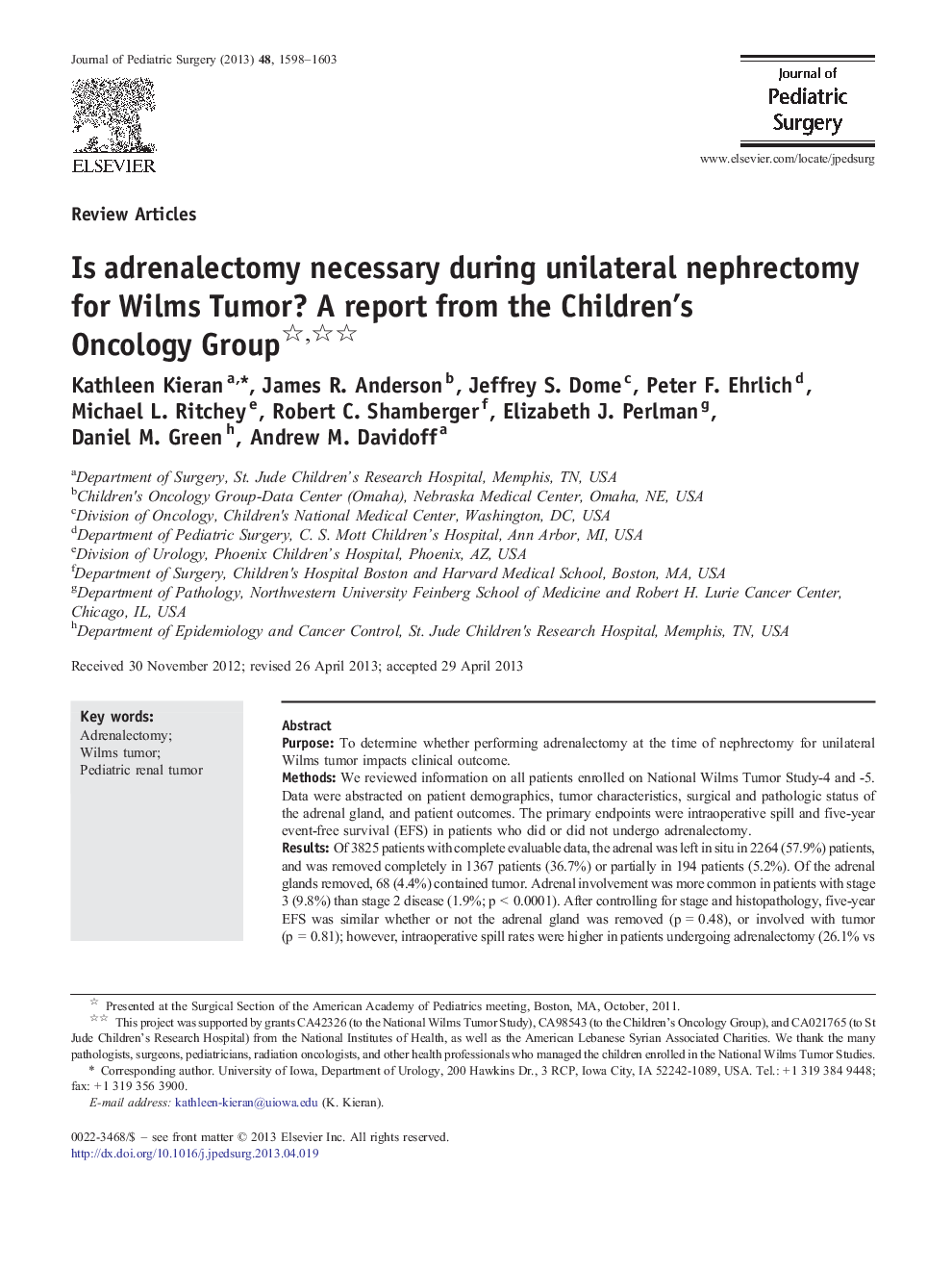| Article ID | Journal | Published Year | Pages | File Type |
|---|---|---|---|---|
| 6217101 | Journal of Pediatric Surgery | 2013 | 6 Pages |
PurposeTo determine whether performing adrenalectomy at the time of nephrectomy for unilateral Wilms tumor impacts clinical outcome.MethodsWe reviewed information on all patients enrolled on National Wilms Tumor Study-4 and -5. Data were abstracted on patient demographics, tumor characteristics, surgical and pathologic status of the adrenal gland, and patient outcomes. The primary endpoints were intraoperative spill and five-year event-free survival (EFS) in patients who did or did not undergo adrenalectomy.ResultsOf 3825 patients with complete evaluable data, the adrenal was left in situ in 2264 (57.9%) patients, and was removed completely in 1367 patients (36.7%) or partially in 194 patients (5.2%). Of the adrenal glands removed, 68 (4.4%) contained tumor. Adrenal involvement was more common in patients with stage 3 (9.8%) than stage 2 disease (1.9%; p < 0.0001). After controlling for stage and histopathology, five-year EFS was similar whether or not the adrenal gland was removed (p = 0.48), or involved with tumor (p = 0.81); however, intraoperative spill rates were higher in patients undergoing adrenalectomy (26.1% vs 15.5%, p < 0.0001), likely due to larger tumor size or technical factors. No patient had clinical evidence of adrenal insufficiency or tumor recurrence in the adrenal gland during follow-up (median 9.9 years).ConclusionsSparing the adrenal gland during nephrectomy for unilateral Wilms tumor was not associated with a higher incidence of intraoperative spill and was associated with a similar oncologic outcome, on a per-stage basis, with cases where the adrenal was removed. Thus, adrenalectomy should not be considered mandatory during radical nephrectomy for Wilms tumor.
